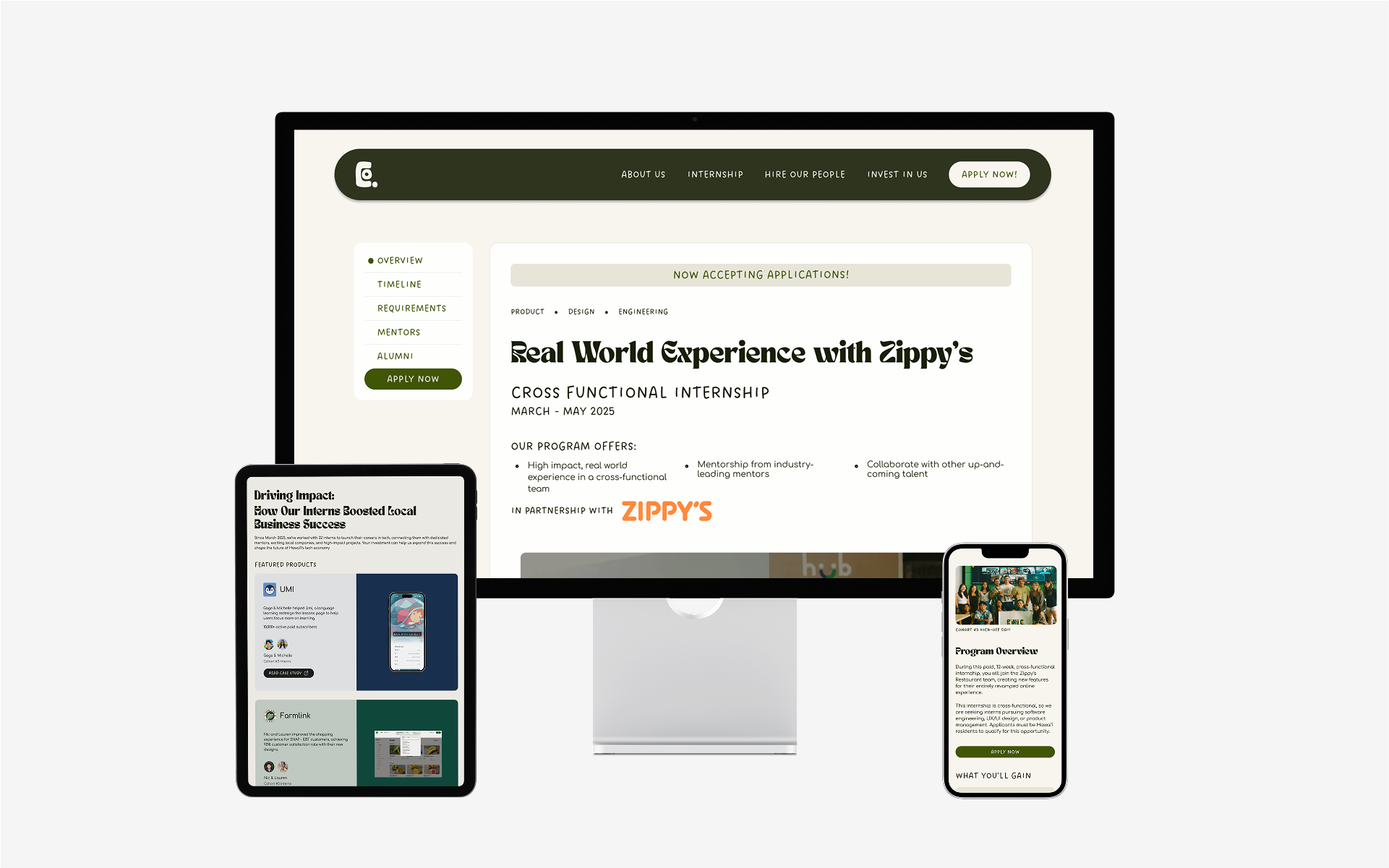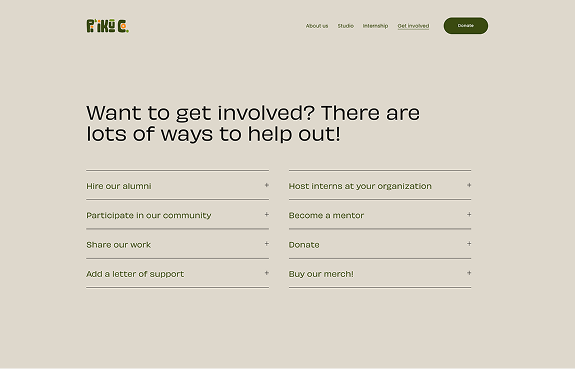Piʻikū Co.
Helping a Hawaiʻi-based nonprofit communicate its impact and inspire investor confidence
Industry
Non-Profit
Timeline
3 months
Year
2024 - 2025
Team
Pi’iku Founding Team of 4
UX & Content Designer - Myself
OverviewTurning a Mission Into a Fundable Story
Background
Piʻikū is a Hawaiʻi-based nonprofit that helps emerging designers and technologists gain real-world experience through mentorship, paid internships, and community-based projects.
As Piʻikū grew, they struggled to communicate their impact and vision clearly to funders. Their website told a heartfelt story but didn’t give investors enough clarity or confidence to take action.
Project Overview
I partnered with Piʻikū’s founding team to redesign their Invest in Us page — transforming it from a static mission statement into a clear, fundable narrative.
My role focused on UX content strategy, information architecture, and storytelling design to help funders understand what Piʻikū does, why it matters, and how their investment fuels growth.
Business Impact
The redesigned page helped Piʻikū:
Communicate its 5-year vision with credibility
Increase investor confidence and outreach success
ChallengeThe original page lacked clarity and structure. While Piʻikū’s mission was powerful, the story wasn’t framed in a way that spoke to investors’ goals or logic.
It made it difficult for funders to understand:
Why Piʻikū was worth supporting?
How funds would be used
What the long-term plan looked like
Solution HighlightsBuilding Trust Through Structure and Storytelling
Clarity through hierarchy
Rebuilt the investor page with scannable modules that lead funders from understanding the mission to trusting its impact and taking action

